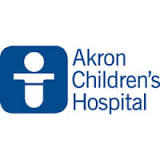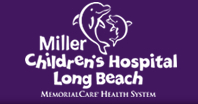Characterizing Lone Parenting: A Multi-institutional Pilot Study of the Perceptions of Support and Perceived Stress of Lone Parents of Children With Cancer
| Status: | Completed |
|---|---|
| Conditions: | Cancer, Cancer |
| Therapuetic Areas: | Oncology |
| Healthy: | No |
| Age Range: | 18 - 65 |
| Updated: | 4/6/2019 |
| Start Date: | August 6, 2009 |
| End Date: | March 8, 2018 |
Characterizing Lone Parenting: A Multi-Institutional Pilot Study of the Perceptions of Support and Perceived Stress of Lone Parents of Children With Cancer
This study will describe the perceptions of support and distress outcomes of single/lone
parents of a child with cancer.
Background:
- Parents and families of children with chronic illnesses have stressors, including
financial stress, role strains, separations, and interruptions in daily routines and
plans for the future. All of these experiences may lead directly and indirectly to
parental stress.
- The number of families headed by single or lone parents is increasing. Little work has
been done to better understand if the needs of parents who are providing care for a
child on their own differ from parents who do not classify themselves as lone.
Identifying parents who may need additional support within a pediatric oncology setting
is very important so that appropriate support is provided.
Objectives:
- To better understand the social, emotional, and practical effects of lone parents on
children with cancer.
Eligibility:
- All parents whose child has been diagnosed with cancer between 6 and 18 months before
enrolling on the study.
- Participants must be able to speak and read English
Design:
- Parents will be asked to complete a questionnaire during one of their child s clinic or
hospital visits.
- The questionnaire will ask about the parenting experience since the child was diagnosed
with cancer. It will ask about the support the parent has received from family and
friends since the diagnosis.
- The questionnaire will take approximately 20 minutes to complete.
parents of a child with cancer.
Background:
- Parents and families of children with chronic illnesses have stressors, including
financial stress, role strains, separations, and interruptions in daily routines and
plans for the future. All of these experiences may lead directly and indirectly to
parental stress.
- The number of families headed by single or lone parents is increasing. Little work has
been done to better understand if the needs of parents who are providing care for a
child on their own differ from parents who do not classify themselves as lone.
Identifying parents who may need additional support within a pediatric oncology setting
is very important so that appropriate support is provided.
Objectives:
- To better understand the social, emotional, and practical effects of lone parents on
children with cancer.
Eligibility:
- All parents whose child has been diagnosed with cancer between 6 and 18 months before
enrolling on the study.
- Participants must be able to speak and read English
Design:
- Parents will be asked to complete a questionnaire during one of their child s clinic or
hospital visits.
- The questionnaire will ask about the parenting experience since the child was diagnosed
with cancer. It will ask about the support the parent has received from family and
friends since the diagnosis.
- The questionnaire will take approximately 20 minutes to complete.
Background:
- Research examining the potential impact of childhood chronic illness on parents and
families has delineated a myriad of stressors that parents may experience, including
financial stress, role strains, separations, interruptions in daily routines and plans
for the future, and general uncertainty regarding the child s prognosis.
- All of these possible experiences may lead directly and indirectly to anxiety,
depression, posttraumatic-stress, hopelessness, and feelings of loss of control in
parents and families.
- The number of families headed by single, or lone parents has increased significantly,
with 3 in 10 children now living in single parent homes.
- It is not known whether distress is greater for parents who are lone parents.
- Lone-parent families earn on average only 55% of what married-parent families earn, and
are four times more likely to live in poverty.
- It is unclear how lone parents trying to navigate the complex needs of maintaining a
home, family, and a chronically ill child adapt to these challenges.
- It is also unclear how many parents who check single on a standardized forced choice
questionnaire format consider themselves to be lone when it comes to the experience of
caring for their child with cancer.
Objective:
- Aim 1: To define and characterize lone parents
- Aim 2: To describe perceptions of social support and how they relate to lone and
non-lone parenting
- Aim 3: To identify distress outcomes in parents of children with cancer who identify
themselves as being lone when it comes to the experience of caring for a child with
cancer
Study Population:
English and Spanish speaking parents of a child (1through 17 years) with a malignancy,
diagnosed 6-18 months before recruitment will be invited to participate in this study.
Design:
-This is a pilot, exploratory study designed to describe the perceptions of support and
distress outcomes of single/lone parents of a child with cancer. Participants will be
administered a Lone Parent Support Questionnaire designed for this study. The study will be
completed in one visit (<30mins).
- Research examining the potential impact of childhood chronic illness on parents and
families has delineated a myriad of stressors that parents may experience, including
financial stress, role strains, separations, interruptions in daily routines and plans
for the future, and general uncertainty regarding the child s prognosis.
- All of these possible experiences may lead directly and indirectly to anxiety,
depression, posttraumatic-stress, hopelessness, and feelings of loss of control in
parents and families.
- The number of families headed by single, or lone parents has increased significantly,
with 3 in 10 children now living in single parent homes.
- It is not known whether distress is greater for parents who are lone parents.
- Lone-parent families earn on average only 55% of what married-parent families earn, and
are four times more likely to live in poverty.
- It is unclear how lone parents trying to navigate the complex needs of maintaining a
home, family, and a chronically ill child adapt to these challenges.
- It is also unclear how many parents who check single on a standardized forced choice
questionnaire format consider themselves to be lone when it comes to the experience of
caring for their child with cancer.
Objective:
- Aim 1: To define and characterize lone parents
- Aim 2: To describe perceptions of social support and how they relate to lone and
non-lone parenting
- Aim 3: To identify distress outcomes in parents of children with cancer who identify
themselves as being lone when it comes to the experience of caring for a child with
cancer
Study Population:
English and Spanish speaking parents of a child (1through 17 years) with a malignancy,
diagnosed 6-18 months before recruitment will be invited to participate in this study.
Design:
-This is a pilot, exploratory study designed to describe the perceptions of support and
distress outcomes of single/lone parents of a child with cancer. Participants will be
administered a Lone Parent Support Questionnaire designed for this study. The study will be
completed in one visit (<30mins).
- INCLUSION CRITERIA:
1. Parents or primary guardians of children (ages 6 months through 17 years) with
any malignancy whose child is 6-18 months post-diagnosis.
2. Ability to give informed consent.
3. English or Spanish speaking
EXCLUSION CRITERIA:
1. Severe psychological distress which - in the judgment of the Principal or Associate
Investigators at each respective collection site- would compromise the participant s
ability to understand the questionnaire or is likely to interfere with the study
procedures or results.
2. Relapse of malignancy
We found this trial at
10
sites
Memorial Sloan Kettering Cancer Center Memorial Sloan Kettering Cancer Center — the world's oldest and...
Click here to add this to my saved trials
Akron Children's Hospital From humble beginnings as a day nursery in 1890, Akron Children
Click here to add this to my saved trials
University of Alabama at Birmingham The University of Alabama at Birmingham (UAB) traces its roots...
Click here to add this to my saved trials
University of Mississippi Medical Center The University of Mississippi Medical Center, located in Jackson, is...
Click here to add this to my saved trials
St. Jude Children's Research Hospital St. Jude is unlike any other pediatric treatment and research...
Click here to add this to my saved trials
9000 Rockville Pike
Bethesda, Maryland 20892
Bethesda, Maryland 20892
Click here to add this to my saved trials
Dana-Farber Cancer Institute Since it’s founding in 1947, Dana-Farber has been committed to providing adults...
Click here to add this to my saved trials
Miller Children's Hospital Miller Children
Click here to add this to my saved trials
Medical College of Wisconsin The Medical College (MCW) of Wisconsin is a major national research...
Click here to add this to my saved trials
Click here to add this to my saved trials







